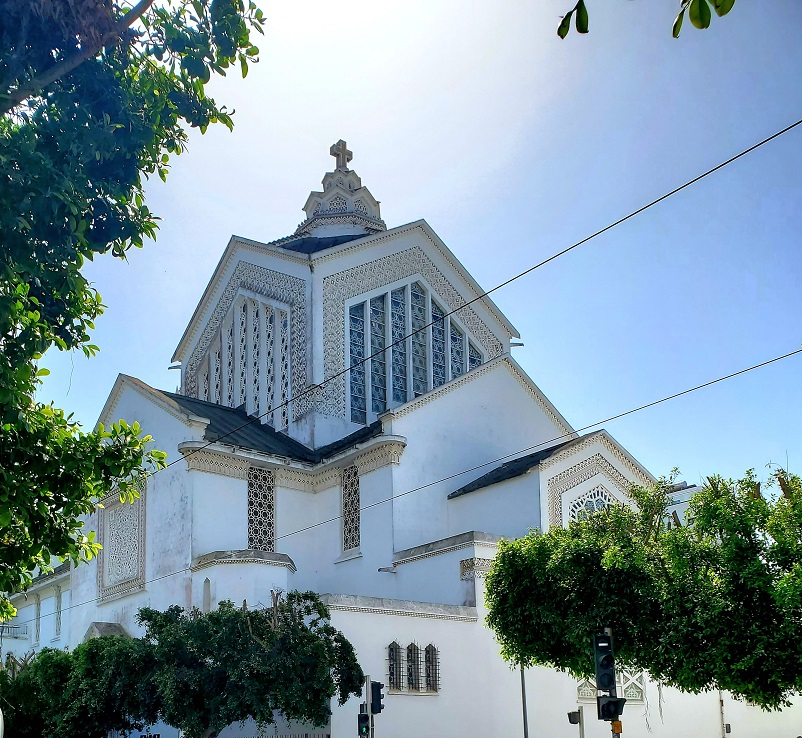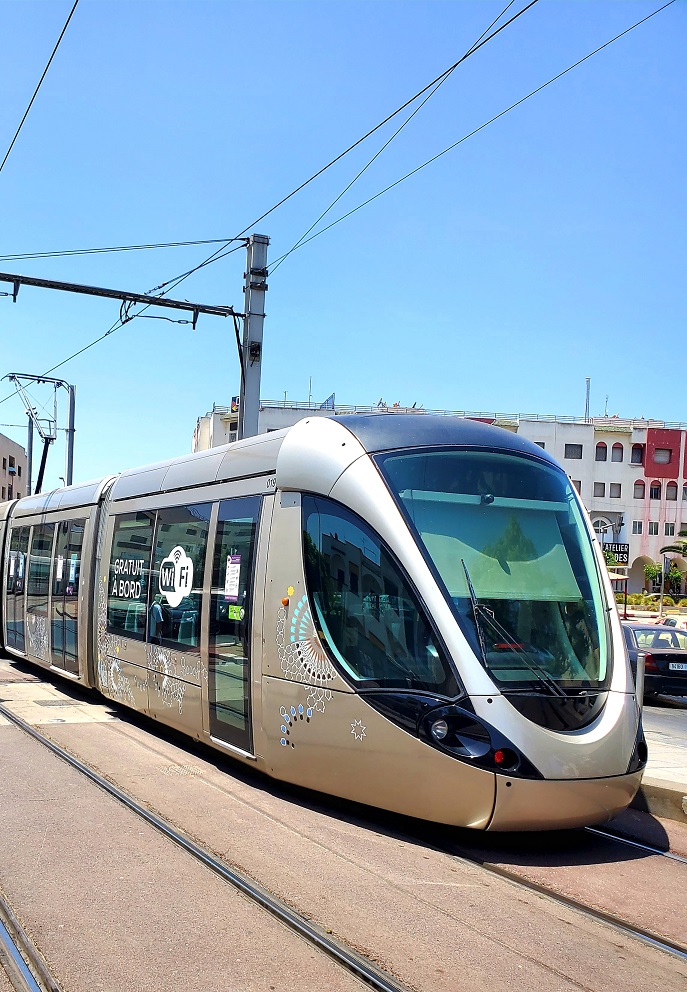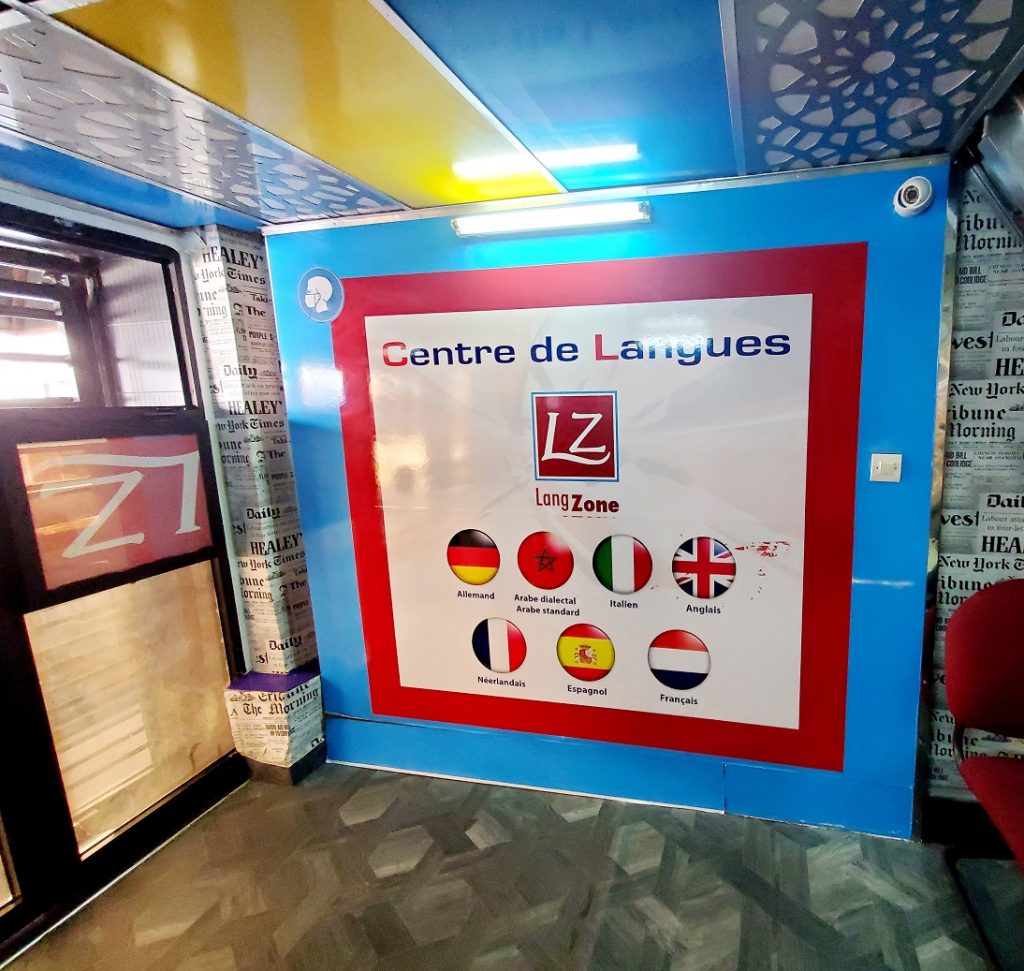
With deepest gratitude to Modern Languages and Literatures and CAS at large, this blog concludes my orientation and exploratory visit to a few long-standing academic centers in Rabat, Morocco with which Loyola had years of partnership and collaboration for students’ experiential learning and growth.
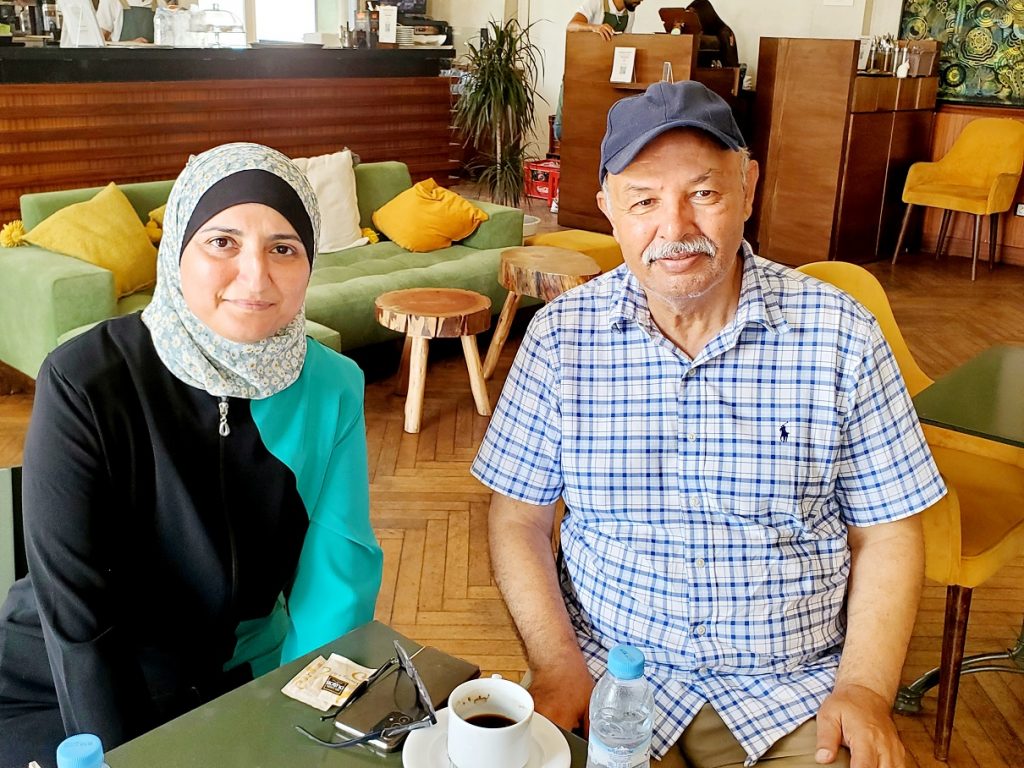
The focus this time is on the SIT study abroad program in Morocco titled “Multiculturalism & Human Rights.” The distinguished academician and mentor Dr. Taieb Belghazi has directed the SIT Rabat / Morocco program for over 25 years. Many former students, including Ramblers, describe him as “a kind fatherly figure and mentor!” In my meeting with him, he spoke of his continued interest in rethinking foreign language teaching and learning’s framework to reconcile teaching of languages, contents, and cultures with the micro and macro needs of current global contexts.
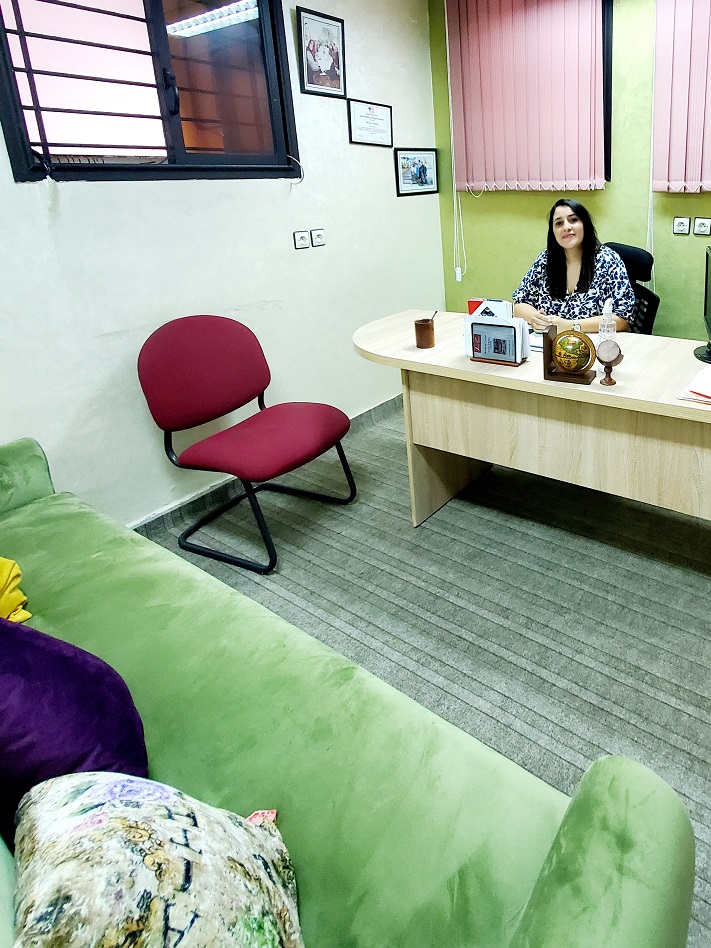
The physical home of the SIT program, which continues to be directed by Dr. Belghazi, has recently changed to “Lang Zone,” and I had the pleasure of speaking with its founder and director, Dr. Meryem Bakkali, who kindly took me into a tour of the three locations of the center within the city of Rabat.
The center is imbedded within the lively quarter of Old Rabat; a bustling market center with traditional maze-like narrow ceiled allies; the colors and aromas diverge from spices corners, to pottery making, leather artifacts, traditional clothing, Argan oil soups and beauty products, dried fruit, and much more. I cannot tell you how much I enjoyed getting lost in this maze and discovering new corners, historic and bygone. To be honest, at sometimes I kept looping around and had to ask for help finding the way out!

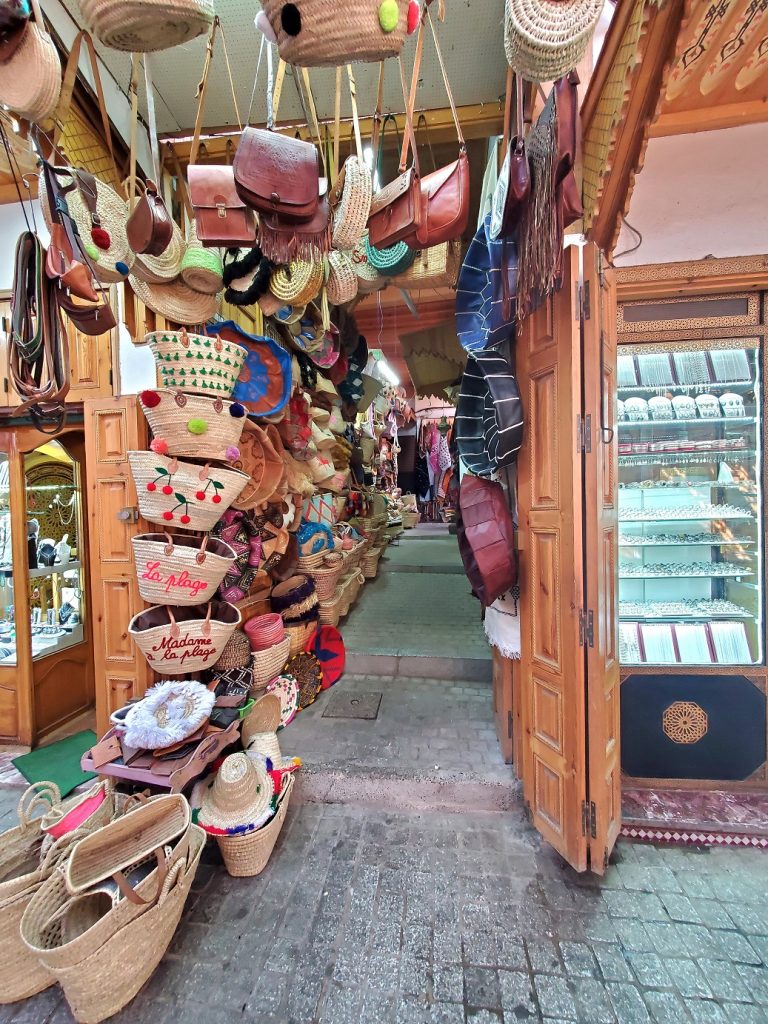
The administrative center is served by the tramways making students’ movement accessible. Several diverse faith related centers add a unique essence to the cross cultural and religious norms. Surely, hearing the linguistic mix of Arabic dialects, French, Amazigh, among those of tourists’ is breathtaking.
As a UNESCO site heritage quarter, the old city of Rabat is full of treasures to explore. I do not want to forget to mention the scenery across the oceans, with tall palm trees, blue skies, and sandy fort-like historic walls separating the ancient and contemporary across time and space.
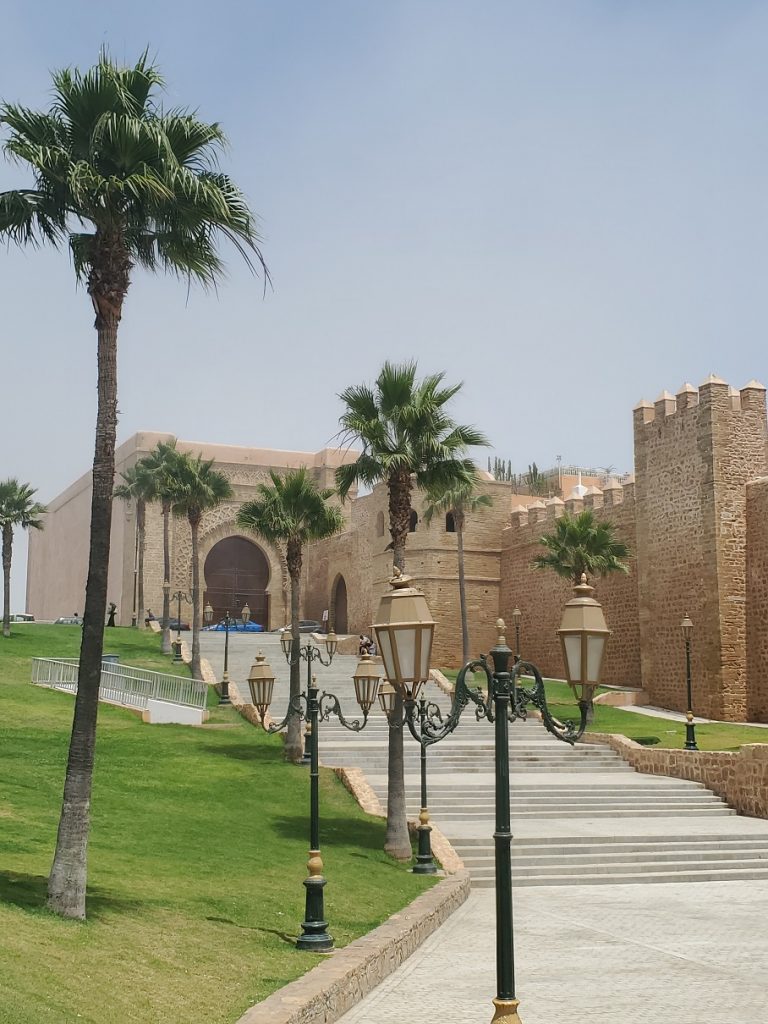
Dr. Bakkali spoke proudly of the efforts to be an inclusive center that facilitates students’ engagement in several humanitarian initiatives and sociocultural immersion opportunities within a safe environment making all feel welcomed. She passionately spoke of the recursive learning and assessment framework of Arabic courses as a deliberate attempt to maximize learning output opportunities, offering a choice of differentiated, dynamic & individualized cognitive and metacognitive, affective, and social learning venues.
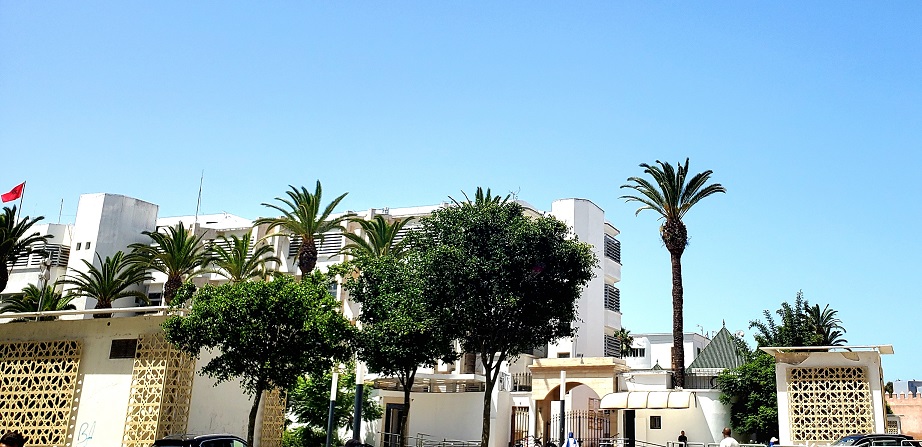
The center invites speakers, artists, and social activities from varied backgrounds to enrich students’ experiences. We wish the center success and continued growth! I am indebted to the trust, kindness, and time of the directors and founders to help me walk through and relate to our students’ immersion experiences in learning Arabic in Rabat, Morocco!
